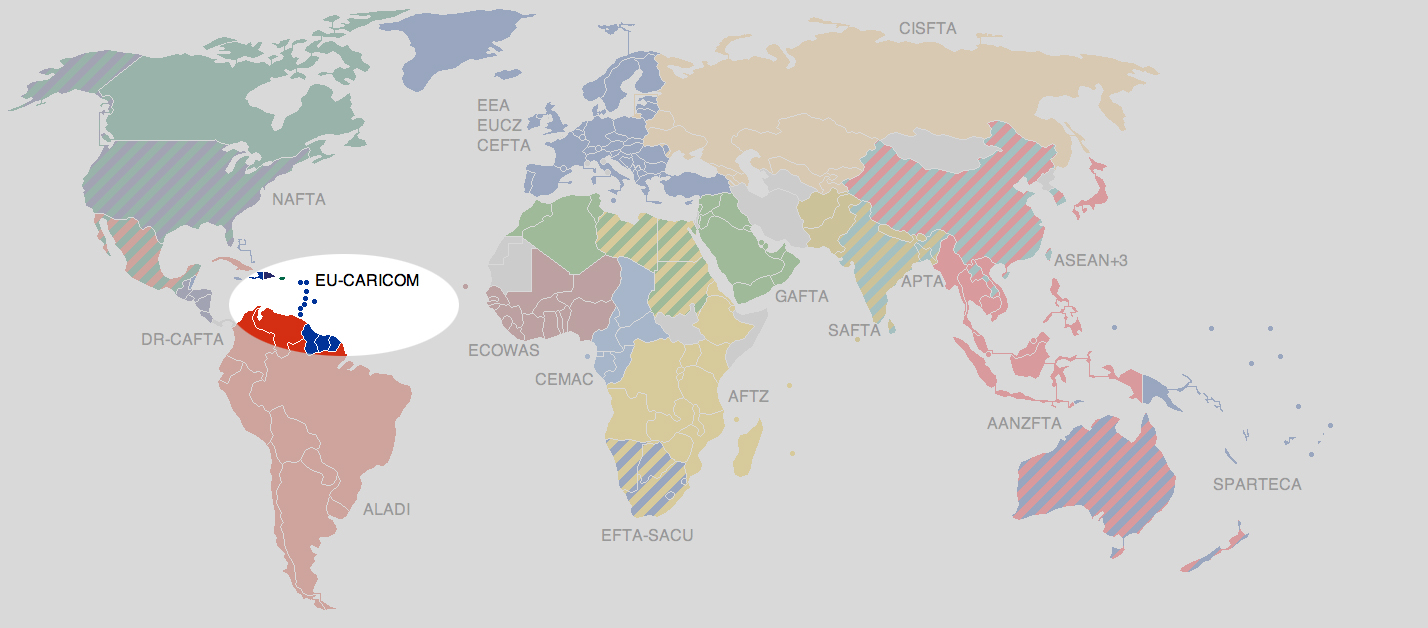
One can estimate in the near future
that economic integration among multiple nations in a specific
geographical region will become more commonplace. The last twenty
years have seen the progress of the European Union and their common
monetary unit, for example, though the EU is hardly the first
collaborative economic organization. In the Caribbean, where European
influence still remains despite the independence of many island
nations, have worked to strengthen equity in trade for nearly four
decades. As parts of the Caribbean Community, or CARICOM, fifteen
nations and dependencies join forces to encourage good trade
relations with Europe.
Since 1973, when CARICOM came into
formation to succeed an earlier free trade agreement which linked the
region's primarily English-speaking nations, fifteen full members
have joined:
In addition, five British territories
are included as associate members: Anguilla, Bermuda, the Cayman
Islands, Turks and Caicos, and the British Virgin Islands. CARICOM
trade and economic business is overseen by a general counsel while
social relations are the responsibility of a Deputy
Secretary-General. The Secretariat serves the chief position in
CARICOM from their official headquarters in Georgetown, Guyana.
Benefits of this union among the
Caribbean nations have included:
Expedited assistance for
underdeveloped nations within the community. One can argue that a
common assumption about the Caribbean islands is that most or all
are considered "third world." While these countries do not enjoy
the industrial advantage of a global power like the United States,
the CARICOM nations as a whole represent on average over $90 billion
of the world's GDP. Some nations within CARICOM are also more
equipped to help others in terms of trade.
Civil relations, conflict
resolution, and emergency assistance. Through their central
headquarters, the CARICOM nations are able to tackle tensions within
the community before they become heated. A recent example involving
the deposition of Haiti's president in 2004 resulted in the
nation's suspension from CARICOM, though the country was
ultimately reinstated. Presently, CARICOM members continue to
support Haiti following their recent, devastating earthquake.
Open borders. The recent
establishment of a CARICOM passport allows citizens in twelve of the
fifteen member nations to travel easily within the Caribbean.
Similarly, CARICOM has made provisions for tourists and visitors to
"island hop" during special events such as the Cricket World
Cup.
With regards to relations outside
membership, the CARICOM nations have agreements with Cuba, Costa
Rica, and the Dominican Republic. Proposed agreements with Canada and
the United States would further solidify CARICOM's status with the
NAFTA nations, as Mexico is already associated with CARICOM as an
observing nation. Should relations strengthen between the US and the
Caribbean, we may see an increased benefit through tourism which
allows US citizens to travel freely across island borders and,
perhaps one day, use a currency common among all CARICOM members that
keeps the economy in the islands strong.